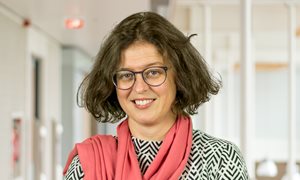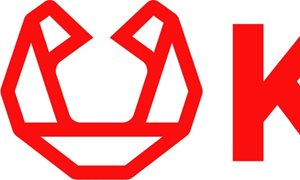18 January 2018
My answer: In the last year of my PhD, most of my data got to complete stories and in the last months I wrote most of my papers. I think it was just a matter of focus and wanting to finish everything, making a lot of hours. If I would have to advise others I would say: find your way to keep your focus and work with a good structure. I always write with music in my ears, which detaches me from the rest of my environment and helps me focus.
b) Theater or cinema? : cinema
c) Dine out or dine in? : dine out
d) Ferrari or Fiat? : Fiat
e) Shopaholic or chocoholic? : definitely chocoholic
f) Culture or Nature : usually a combination, but if I have to choose Nature
 My name is Annemarie Boleij, I was born in Boxtel, North-Brabant, The Netherlands and I am currently a scientific researcher at the department of Pathology, theme Tumors of the digestive tract.
My name is Annemarie Boleij, I was born in Boxtel, North-Brabant, The Netherlands and I am currently a scientific researcher at the department of Pathology, theme Tumors of the digestive tract.
When you were a kid what did you want to be when you grew up? Can you tell us something about your child years.
When I was young, I was always reading, making puzzles, trying to figure out how things worked. Besides that I love to play the clarinet, but quickly decided that music should stay a hobby. In middle-school I wanted to be a teacher. Although I am a full-time researcher now, I love to explain and “teach” students how things work in the lab.What was your previous academic training, where did you study and why that study?
My previous academic training was at the Johns Hopkins Medical Institutions in Baltimore, USA in the lab of Prof. Dr. Cynthia Sears. By the time I finished my Phd on Streptococcus gallolyticus infections in cancer patients in 2012, the first microbiome studies were getting out and I decided that there was much more to know in this field. Therefore I contacted one of my role models in this field, Dr. Cynthia Sears, to see if she wanted to host me for my Rubicon-project. It was a great decision. I worked there as a post-doctoral researcher for 2 years on my own Rubicon-project regarding the role of the Bacteroides fragilis toxin in cancer development in humans.The RIMLS motto is ‘to understand molecular mechanisms of disease’. What does this mean for you?
For me personally I would like to understand how microbes contribute to cancer in humans. While many microbiome studies are being conducted, we get a better picture of the tumor-microbiome, but we still not fully understand how these microbes individually or as a community contribute to cancer development. In my research group we try to further understand these mechanisms with both in vitro studies focusing on mechanisms of individual microbes that inhibit and promote carcinogenesis and in vivo studies looking at bacterial community structures and toxin prevalence in high-risk patient groups, such as patients with the Lynch syndrome and ulcerative colitis.Who is your great example as scientists? And please give a motivation why.
During my Phd I was really impressed by the work of Dr. Cynthia Sears who for the first time showed that bacteria could actually contribute to colorectal cancer development via an E-cadherin - IL17a related pathway.Which research discovery that you have made has made you most proud?
My discovery that from the Streptococcus bovis/Streptococcus equinus complex especially Streptococcus gallolyticus has a profound relationship with colorectal cancer and has unique abilities to translocate the epithelial barrier and survive in macrophages to cause infections.Given unlimited finance what experiment would you perform?
I would test all individual microbes that have an effect in vitro, in colorectal cancer mice models to figure out if they influence the carcinogenesis process in vivo as well.What does your working area (desk, office) look like and what does it say about you (or your research)?
My desk generally goes from clean to full with papers. If I have to think and write it has to be neat and clean, if I am analysing, or working on other things a bit messy is ok. I am generally very structured and like to organize things in a proper way.You are nominated by Rahwa Taddese:
I would like to ask my supervisor Dr. Annemarie Boleij this: how did you manage to write 9 papers during your PhD project?My answer: In the last year of my PhD, most of my data got to complete stories and in the last months I wrote most of my papers. I think it was just a matter of focus and wanting to finish everything, making a lot of hours. If I would have to advise others I would say: find your way to keep your focus and work with a good structure. I always write with music in my ears, which detaches me from the rest of my environment and helps me focus.
Nominate a colleague to be in the spotlight and what would you like to ask him or her?
I would like to nominate Dr. Rachel van Swelm: What is it like to be managing director of hepcidinanalysis.com?What type of person are you, quick insights:
a) Mac or PC? : Macb) Theater or cinema? : cinema
c) Dine out or dine in? : dine out
d) Ferrari or Fiat? : Fiat
e) Shopaholic or chocoholic? : definitely chocoholic
f) Culture or Nature : usually a combination, but if I have to choose Nature
Related news items

Fewer cancer diagnoses during the COVID-19 epidemic in the Netherlands
7 May 2020 In a commentary in Lancet Oncology Iris Nagtegaal, theme Tumors of the digestive tract, published, together with Thijs Merkx, as head of the IKNL, the latest data that illustrate the impact of the pandemic on the detection of new cancer patients. go to page
Awarded KWF grants for Radboudumc researchers
18 December 2019 KWF is investing 2.7 million euros in five different studies at Radboudumc. The awards are part of the new round of funding by DCS, in which over 34 million euros will be granted to Dutch cancer research. We congratulate our researchers with this funding and wish them success with their great work. go to page
Lieneke Steeghs about the PATH project: Predictive Analysis for Therapy
22 March 2019 Read here the article 'PATH makes predictive molecular diagnostics in cancer unambiguous', of Lieneke Steeghs, theme Tumors of the digestive tract, that was published on the website of ZonMw. go to page
Valentine’s day spectacle at the Radboud Research Rounds
21 February 2019 This year’s Valentine’s day in the Radboudumc was focused on the RRR of the Tumors of the Digestive Tract. In the biannual Paper Award session the big prize went to Daniel Garza from the Center for Molecular and Biomolecular Informatics, for his paper on “the environmental metabolome”. go to page
A personal touch of Iris Nagtegaal
10 February 2019 In order to promote interaction amongst colleagues within RIMLS, we have a ‘personal touch’ series setting employees in the spotlight. A light-hearted manner to learn about the colleagues you know and those you don’t! This week: Iris Nagtegaal. go to page
